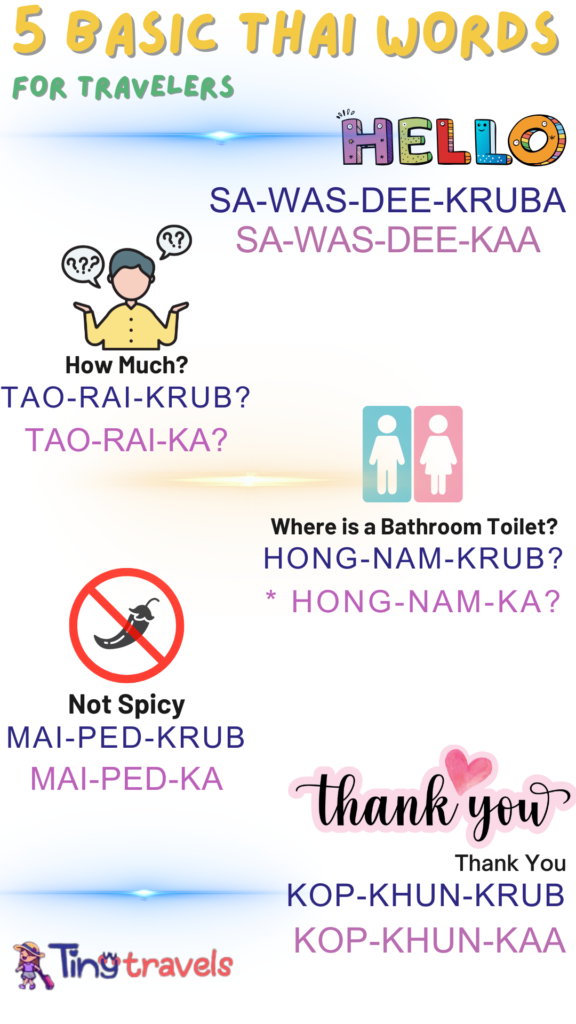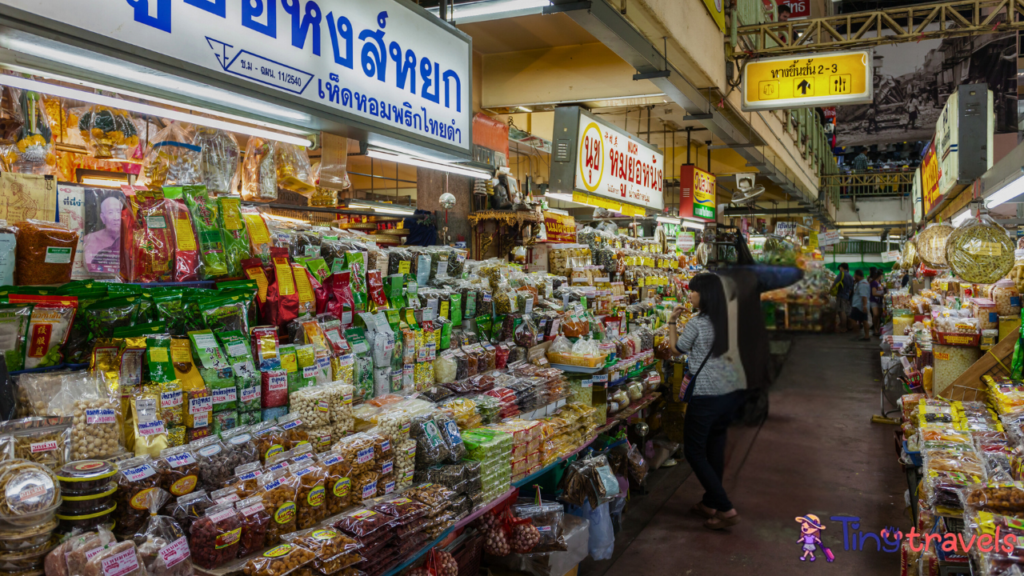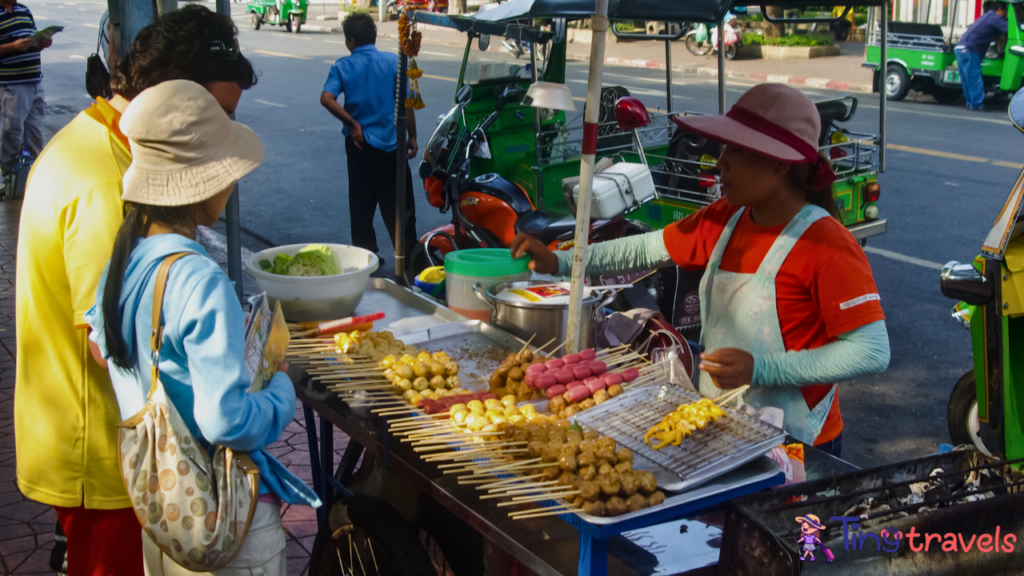How to communicate in Thailand? Use basic English phrases and gestures to communicate in Thailand. Utilize translation apps and learn a few common Thai words.
Thailand is a beautiful and culturally rich country. Tourists often worry about the language barrier. Fortunately, communicating without speaking Thai is manageable. Basic English phrases and simple gestures can go a long way. Many Thais understand basic English, especially in tourist areas.
Translation apps offer real-time help. Learning a few common Thai words can also enhance your experience. Smiling is universal and appreciated. Respect and politeness are key. With these tips, you can navigate Thailand confidently.
# Cultural Etiquette (How To Communicate In Thailand)

In Thailand, understanding cultural etiquette is crucial. It ensures smooth communication and shows respect. Thai people value their traditions and social norms. Being aware of these helps you connect better and avoid misunderstandings.
Respecting Traditions (How To Communicate In Thailand)
Thailand has rich traditions. They play a significant role in daily life. Here are some key points:
- Wai Greeting: Thais greet with a prayer-like gesture called “wai”. Place your palms together and bow slightly. Use this gesture instead of a handshake.
- Monarchy Respect: Thais deeply respect their monarchy. Avoid any negative comments about the royal family.
- Temple Etiquette: Dress modestly when visiting temples. Remove shoes before entering. Do not point your feet at Buddha statues.
Understanding Social Norms (How To Communicate In Thailand)
Social norms in Thailand are unique. They influence how people interact. Here are some important norms:
| Norm | Description |
|---|---|
| Head and Feet: | The head is considered sacred. Do not touch anyone’s head. Feet are seen as dirty. Avoid pointing your feet at people or religious objects. |
| Public Displays of Affection: | Thais are conservative. Avoid kissing or hugging in public. |
| Smiling: | Thais smile often. It shows friendliness and helps ease tensions. |
By respecting these traditions and norms, you can build better relationships in Thailand. It shows that you value their culture, even if you don’t speak Thai.
# Non-verbal Communication (How To Communicate In Thailand)
Traveling to Thailand without speaking Thai can be daunting. Non-verbal communication is your best ally. Thais are friendly and understanding. Using gestures and expressions can bridge the language gap.

Body Language (How To Communicate In Thailand)
Body language is powerful. Thais appreciate respectful gestures. Bow slightly with palms together when greeting. This is called the “wai”. It shows respect and gratitude.
Pointing with your feet is rude. Avoid it at all costs. Instead, use your hands to point. Sit with your feet tucked under your body. This shows respect in temples and homes.
Touching someone’s head is offensive. The head is sacred in Thai culture. Apologize if you accidentally touch someone’s head.
Facial Expressions (How To Communicate In Thailand)
Facial expressions speak volumes. Thais value a warm, smiling face. Smiling shows friendliness and ease. Frowning or showing anger is frowned upon.
Raise your eyebrows to show understanding. Nod gently to show agreement. These small gestures build rapport quickly.
Maintain eye contact. It shows trust and confidence. Avoid staring as it can be seen as aggressive.
# Basic Thai Phrases (How To Communicate In Thailand)

Traveling to Thailand is exciting. Not speaking Thai can be challenging. Learning basic phrases helps a lot. Here are some essential Thai phrases.
Greetings (How To Communicate In Thailand)
Greeting locals in their language shows respect. It makes interactions smooth.
| English | Thai | Pronunciation |
|---|---|---|
| Hello | สวัสดี | Sawasdee |
| Good Morning | สวัสดีตอนเช้า | Sawasdee ton chao |
| Good Night | ราตรีสวัสดิ์ | Ratri Sawat |
Common Questions (How To Communicate In Thailand)
Knowing common questions helps you navigate daily life. Here are some useful ones:
- Where is the bathroom? – ห้องน้ำอยู่ไหน (Hong nam yoo nai?)
- How much does this cost? – ราคาเท่าไหร่ (Ra-ka tao-rai?)
- Do you speak English? – คุณพูดภาษาอังกฤษได้ไหม (Khun pood pasa angkrit dai mai?)
These basic phrases can make your trip easier. Practice them for a better experience. Enjoy your time in Thailand!
# Using Technology (How To Communicate In Thailand)
Traveling to Thailand without knowing Thai can be challenging. Luckily, technology can help bridge the language gap. From translation apps to language learning tools, you can communicate effectively with locals. Here’s how you can leverage these technological aids.
Translation Apps (How To Communicate In Thailand)
Translation apps are a traveler’s best friend in Thailand. These apps can translate spoken or written words instantly. Popular options include Google Translate and iTranslate. Google Translate supports voice, text, and camera translation. You can point your phone at Thai text, and it will convert it to your language. This feature is useful for reading signs or menus.
iTranslate offers voice translation and offline mode. Offline mode is helpful in areas with poor internet. Another excellent app is SayHi Translate. It provides accurate voice translations and helps in having conversations.
| App | Features |
|---|---|
| Google Translate | Text, Voice, Camera, Offline |
| iTranslate | Voice, Offline |
| SayHi Translate | Voice |

Language Learning Tools (How To Communicate In Thailand)
Language learning tools can help you learn basic Thai phrases. Apps like Duolingo and Babbel make learning fun and easy. Duolingo uses games and interactive lessons to teach you. You can learn greetings, numbers, and common phrases quickly.
Babbel focuses on practical conversations. It helps you learn phrases used in daily life. Another useful tool is Memrise. Memrise uses videos of native speakers to teach you. This app helps you understand pronunciation better.
- Duolingo – Fun and interactive lessons.
- Babbel – Practical conversations and daily phrases.
- Memrise – Videos of native speakers for better pronunciation.
# Visual Aids (How To Communicate In Thailand)
Traveling in Thailand without speaking Thai can be challenging. Visual aids can bridge the language gap. They offer a practical way to communicate essential information. Let’s explore some key visual aids.
Pictures And Icons (How To Communicate In Thailand)
Pictures and icons are universal. They can speak louder than words. Carry a small book with common images. This can include food, transportation, and basic needs.
| Category | Common Images |
|---|---|
| Food |  |
| Transport |  |
| Basic Needs |  |
Use your phone to show these images. Many apps offer icon libraries. These can help in many situations. Icons of restrooms, restaurants, and hospitals are helpful.
Pointing And Gestures (How To Communicate In Thailand)
Pointing and gestures are effective in Thailand. Thais often use gestures to communicate. Learn basic gestures to enhance your communication.
- Pointing: Point at objects or locations.
- Thumbs Up: This means approval.
- Waving Hand: Use this to say hello or goodbye.
Keep your gestures simple and clear. Avoid pointing with your feet, as it’s considered rude. Respect local customs to avoid misunderstandings.
Combining pictures, icons, and gestures can make your travel smoother. These visual aids can help you enjoy your Thai adventure.
# Engaging Locals (How To Communicate In Thailand)
Traveling to Thailand can be exciting and a bit challenging. Engaging with locals is key to understanding the culture. You don’t need to speak Thai fluently. Simple gestures and a friendly attitude can go a long way. Below are ways to make friends and find language partners in Thailand.

Making Friends
Making friends in Thailand is easier than you think. Thais are known for their hospitality and friendliness. Here are some tips to help you connect:
- Smile often and be open.
- Learn basic Thai phrases like “Hello” and “Thank you”.
- Participate in local activities and festivals.
- Visit local markets and shops.
- Respect Thai customs and traditions.
Smiling is a universal language in Thailand. A simple smile can break the ice. Learning basic phrases shows respect and effort. Participating in local activities helps you blend in. Markets and shops are great places to meet locals. Always be respectful of Thai customs.
Finding Language Partners
Finding language partners can help you learn Thai and make new friends. Here are a few ways to find them:
- Join language exchange programs.
- Use language learning apps.
- Attend language classes and workshops.
- Visit local cafes and bookshops.
Language exchange programs connect you with locals who want to learn your language. Language learning apps often have community features. Classes and workshops are great for structured learning. Cafes and bookshops are popular hangout spots for language enthusiasts.
| Method | Benefits |
|---|---|
| Language Exchange Programs | Meet locals, practice Thai, make friends. |
| Language Learning Apps | Access community, practice anytime, convenient. |
| Language Classes | Structured learning, meet fellow learners. |
| Cafes and Bookshops | Casual environment, meet language enthusiasts. |
By following these tips, you can engage with locals and learn Thai. This will enrich your travel experience and help you make lasting connections.
# Dealing With Emergencies (How To Communicate In Thailand)
Traveling in Thailand can be a thrilling adventure. But emergencies can happen. Knowing how to handle these situations can be vital. Even without speaking Thai, you can still communicate effectively.
Important Contacts
Keep a list of important contacts handy. Here are some essential numbers:
| Service | Phone Number |
|---|---|
| Police | 191 |
| Ambulance and Rescue | 1554 |
| Fire Department | 199 |
| Tourist Police | 1155 |
Emergency Phrases
Learning a few key phrases can make a big difference. Here are some useful ones:
- Help! – ช่วยด้วย! (Chûay dûay!)
- I need a doctor. – ฉันต้องการหมอ (Chăn dtông gaan mŏr)
- Call the police. – โทรหาตำรวจ (Toh hăa dtam-rùat)
- Where is the hospital? – โรงพยาบาลอยู่ที่ไหน (Rohng pá-yaa-baan yòo têe năi?)
- I’m lost. – ฉันหลงทาง (Chăn lŏng taang)
These phrases can help you get quick assistance. Practice them before your trip.
# Learning Resources (How To Communicate In Thailand)
Communicating in Thailand without speaking Thai can be easier than you think. Using the right learning resources can help you navigate through daily interactions. Let’s explore some effective ways to learn Thai quickly.
Books And Guides
Books and guides are great for learning Thai at your own pace. They provide structured lessons and exercises.
| Book Title | Author |
|---|---|
| Thai for Beginners | Benjawan Poomsan Becker |
| Everyday Thai for Beginners | Wiworn Kesavatana-Dohrs |
These books are rich in vocabulary and grammar. They include pronunciation tips and cultural notes. You can also find phrasebooks for quick reference.
Online Courses
Online courses offer interactive and engaging lessons. They are perfect for visual and auditory learners. Many platforms provide structured and flexible learning options.
- ThaiPod101: Offers audio and video lessons.
- Udemy: Features comprehensive Thai language courses.
- Coursera: Provides courses taught by native speakers.
These platforms allow you to learn at your own pace. They include quizzes, flashcards, and community support. This way, you can practice speaking and listening skills effectively.
Frequently Asked Questions
How Can I Communicate In Thailand Without Thai?
You can use English in tourist areas, use translation apps, learn basic Thai phrases, or rely on gestures.
Are Translation Apps Effective In Thailand?
Yes, translation apps are effective. They help bridge language gaps. Google Translate is widely used and reliable.
What Are Essential Thai Phrases For Tourists?
Learn basic phrases like “hello” (sawasdee), “thank you” (khob khun), and “how much? ” (tao rai). These are very helpful.
Can I Rely On Body Language In Thailand?
Yes, body language is universally understood. Smile often, use hand gestures, and be polite to communicate effectively.
Mastering non-verbal communication and using translation apps can significantly ease your travel experience in Thailand. Remember, a smile goes a long way. Practice basic Thai phrases to show respect and enhance your interactions. Embrace the local culture and enjoy your journey without language barriers.
You may like ” Do They Speak English“?
